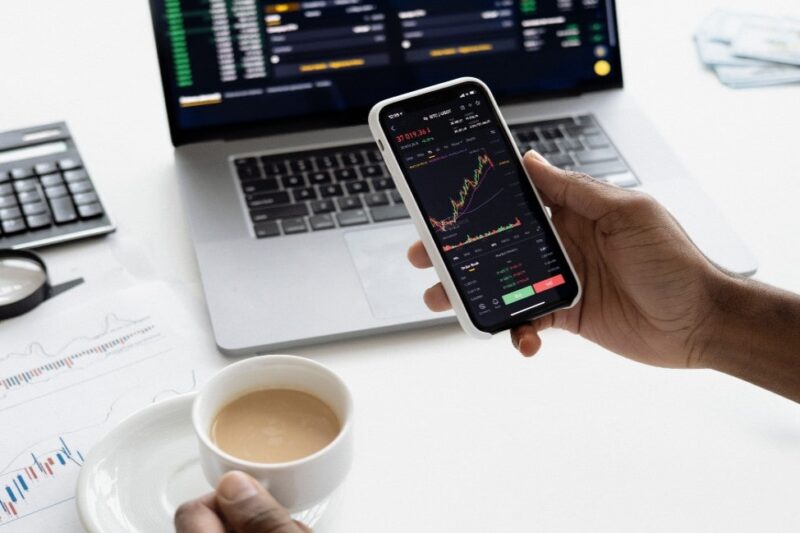The concept of online trading platforms often gets mixed reviews. One side argues they provide convenience and access; the other side fears they are just a fast track to losing money. So, what’s the truth?
Do platforms really offer financial freedom, or are they the casino of the stock market? Buckle up—let’s cut through the noise and figure this out.
Key Points:
- Platforms provide access to financial markets without a broker.
- Fees, features, and user interfaces differ widely among them.
- Instant access to investments can lead to impulsive decisions.
- Strategies vary; success depends on knowledge, discipline, and luck.
- Choosing the right platform can impact your profit or loss.
What Are Trading Platforms, and Why Do They Exist?
Platforms exist to simplify access to the financial world. They’re online services where users can buy and sell assets like stocks, forex, and options without a broker. For example, Binomo provides a streamlined approach to trading. It offers tools that let you trade without needing to be an expert, and there’s even a $10,000 demo account for practice.
But here’s the catch—accessibility means temptation. A couple of clicks, and you’re investing like a Wall Street pro… or so you think.
Are platforms like Binomo helpful for beginners? Sure. Are they foolproof? Not even close. A lot of users jump in, attracted by the simple interface, without truly grasping what they’re getting into. You can learn how to trade effectively, but it takes time and patience. And let’s face it, those qualities are rare when you’re staring at colorful charts with prices jumping up and down like they’re at a rave.
The Appeal of Instant Access

Speed is a blessing and a curse. No waiting for brokers or banks; your account gets funded, and you’re ready. The problem? Easy access can lead to bad habits. If you’re impulsive or easily swayed by emotions, the rapid pace of trading can be like handing a kid the keys to a Ferrari. The engine roars, but you might not have the skills to steer. A well-designed platform looks fun, which makes the temptation to hit “buy” even stronger.
To manage the temptation, experts recommend setting rules for yourself. No spur-of-the-moment decisions. Decide on entry and exit points ahead of time and stick to them. Otherwise, every slight dip in value will feel like a personal insult, and you’ll want to hit “sell” at the worst possible moment.
Platforms Are Tools, Not Fortune Tellers
A common misconception ─ platforms can make you rich just because they offer access to the markets. Truth is, they’re tools. They’re no more magical than a hammer or a saw—success depends on the user. Knowing how to analyze data, predict market trends, and manage risk are skills that separate serious traders from amateurs.
For every story of someone making a quick buck, there are a thousand stories of folks who lost their life savings. Platforms sometimes highlight success stories because, hey, nobody wants to advertise that someone blew their savings trying to short-sell Tesla.
Table: Pros and Cons of Using Trading Platforms
| Pros | Cons |
| Easy access to markets | High risk of impulsive choices |
| Low entry barriers | High fees for active traders |
| Educational resources | Complex interfaces for newbies |
| Quick trades | Volatility can lead to losses |
Strategies to Use Without Losing Your Shirt

Smart strategies can mean the difference between profit and loss. Some go for “buy and hold,” investing in long-term stocks and waiting for growth. Others day trade, taking advantage of short-term market movements.
The fast trades can make your head spin, and there’s no guarantee you’ll make money. For beginners, sticking with simple, long-term plans can help. Also, learn the platform’s features. You wouldn’t drive a car without understanding the pedals, right? Same idea here—spend time on demo accounts before risking actual money.
1. Learn Risk Management
Manage risk by investing only what you can afford to lose. Diversify your investments across different asset types. Never go “all in” on a single trade. Use stop-loss orders to cap your losses. The platform offers tools—use them wisely. The aim is to stay in the game long enough to gain experience.
2. Set Realistic Goals
Think about what you really want to achieve. Trying to double your money in a week? Good luck—most successful traders look for steady, small gains over time. Set goals based on facts, not dreams.
3. Beware of Leverage
Leverage lets you trade with more money than you have. It can lead to significant gains but also devastating losses. Imagine borrowing $1,000, and making a profit of $200. Sounds great, but if things go south, you owe more than you started with. Unless you’re experienced, avoid trading with leverage until you know exactly how it works.
Questions Beginners Might Ask

1. Can I make money on a platform quickly?
Possible, but unlikely. Success requires skills, knowledge, and strategy.
2. What should I look for in a trading platform?
Look for security, user interface, fees, and educational resources.
3. Are fees a big deal?
Yes. Fees eat into profits, so find platforms with transparent fee structures.
4. How does a demo account help?
A demo account lets you practice without risking real money, building your confidence.
5. Is trading like gambling?
There are similarities, but good traders use analysis and strategy instead of luck.
Final Thoughts
Yes and no. Platforms provide powerful tools that democratize finance, letting anyone trade from their phone or computer. But without caution, they can turn into expensive lessons. It’s easy to get caught up in the excitement, forget the risks, and lose money faster than expected.
Success is possible, but it requires time, education, and a strong stomach for risk. So, before you leap in, think about your goals and plan carefully. If you treat platforms like slot machines, expect slot machine results. Treat them like tools—learn, practice, and proceed with caution—and you stand a better chance of turning a profit.
In the end, they’re as fancy as you make them. Use the bells and whistles wisely, and you’ll have a better shot at hearing the sound of profit instead of a sad trombone.


